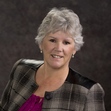Phyllis Zimbler Miller – COVID-19: When Words Are All We Have
COVID-19: When Words Are All We Have
We writers may have a small advantage during the COVID-19 pandemic: Most or many of us truly believe in the power of words both to help – and hurt – others.
After all, when we obsess over whether we chose the correct word to describe something, we are recognizing the power that each individual word can have in communicating the correct or incorrect meaning for what we are trying to express.
Why is this so important now?
In a time when we are fragile both physically and emotionally, it is imperative that we take extra care with our words.
For example, before the start of a prayer service held via Zoom, I heard participant #1 greet participant #2 by saying he hadn’t seen participant #2 for some time. In normal circumstances that might appear to be a pleasant greeting, yet in this specific prayer service, the greeting could be seen as a reprimand. (Participant #2 was clearly at a loss for words when asked “Where have you been?”) The better and more sensitive approach would have been a greeting that only said “How nice to see you.”
Or take the account of a first responder who felt so badly that he couldn’t physically comfort (his usual practice) someone whose wife had just died. The first responder bemoaned he could only use words to comfort the husband.
Now could be the time to use our writing abilities to comfort those in isolation.
Perhaps your elderly parents live across the country. This might be a good opportunity to interview them via phone on their childhood memories. Then you can write those memories so these can be shared with other family members.
My 95-year-old father Al Zimbler died in the early hours of March 19 (not from the virus). Since I couldn’t fly from Los Angeles to Chicago for the funeral, I found another way to honor his memory:
I went through his eight humorous short story books (published on Amazon) looking for the asterisk next to a short story title that indicated a true story. Then I created a page on his comedy website with links to all the true stories in chronological order (or the best order I could figure out). When people called or emailed me about his death, I sent them the link to the true stories (see http://www.alzimcomedy.com/true-stories-al-zimbler/).
Perhaps an organization that you support needs someone to volunteer to write emails to organization members. Or your synagogue or church needs help creating phone scripts to explain changes (especially for people who don’t use email).
I just received an email from a member of the Great Books discussion group to which I belong. Because some of the members aren’t very tech savvy, we have not yet tried Zoom meetings as other book discussion groups have. Instead this member shared his thoughts on the books he read for which we weren’t able to have our discussion meetings. (We set up our two-books-a-month reading schedule a year ahead of time, so we all have the list of the books for 2020.)
Consider starting an online discussion with your friends to share your thoughts on the different books you are each currently reading (or listening to) or on other shared interests. Email and Zoom may have to be our public forums for a considerable length of time.
In conclusion, Joylene and I welcome you to add in the comments below more ideas of how we can use our writing abilities (from the safety of our own homes) to reach out to others in this time of COVID-19.

 Phyllis Zimbler Miller is an author and screenwriter in Los Angeles. She can be reached through her website at www.PhyllisZimblerMiller.com
Phyllis Zimbler Miller is an author and screenwriter in Los Angeles. She can be reached through her website at www.PhyllisZimblerMiller.com
Phyllis Zimbler Miller
Screenwriter * Author
www.linkedin.com/in/phylliszimblermiller
http://twitter.com/ZimblerMiller
Skype: PhyllisZimblerMiller12
Member of Women in Film
Member of Military Writers Society of America
The post Phyllis Zimbler Miller – COVID-19: When Words Are All We Have appeared first on Joylene Nowell Butler.



